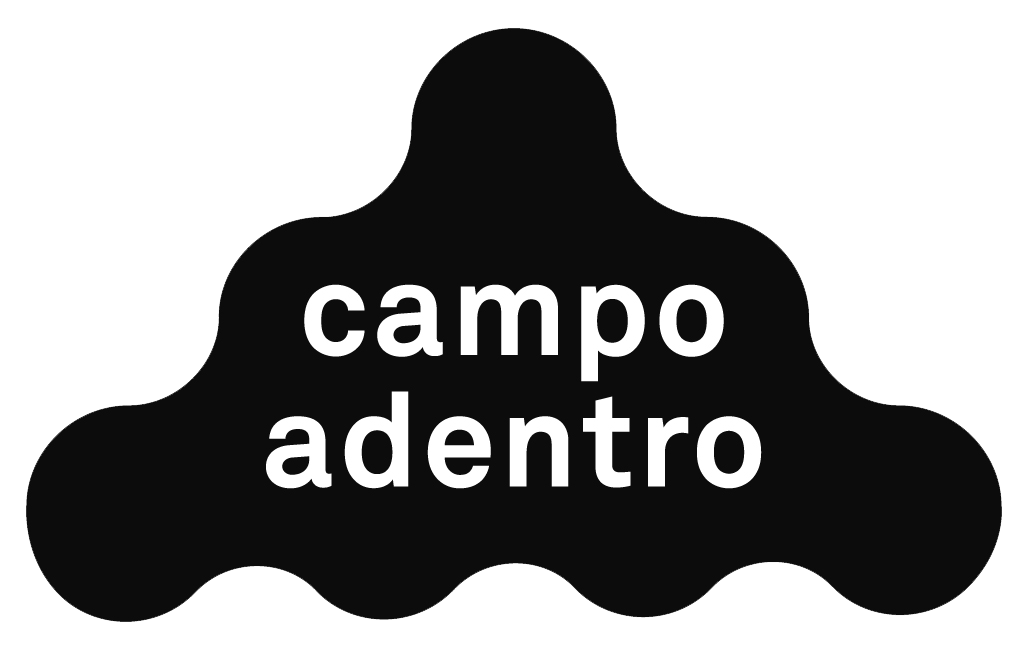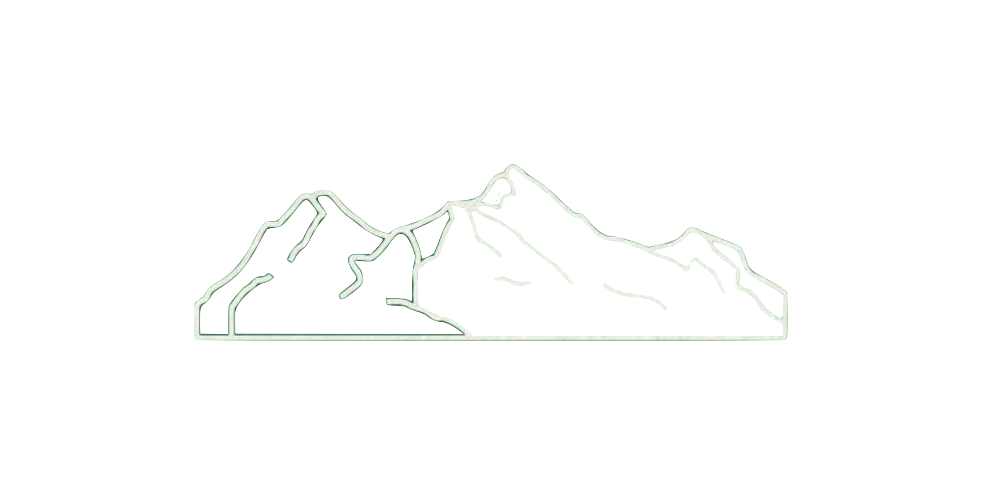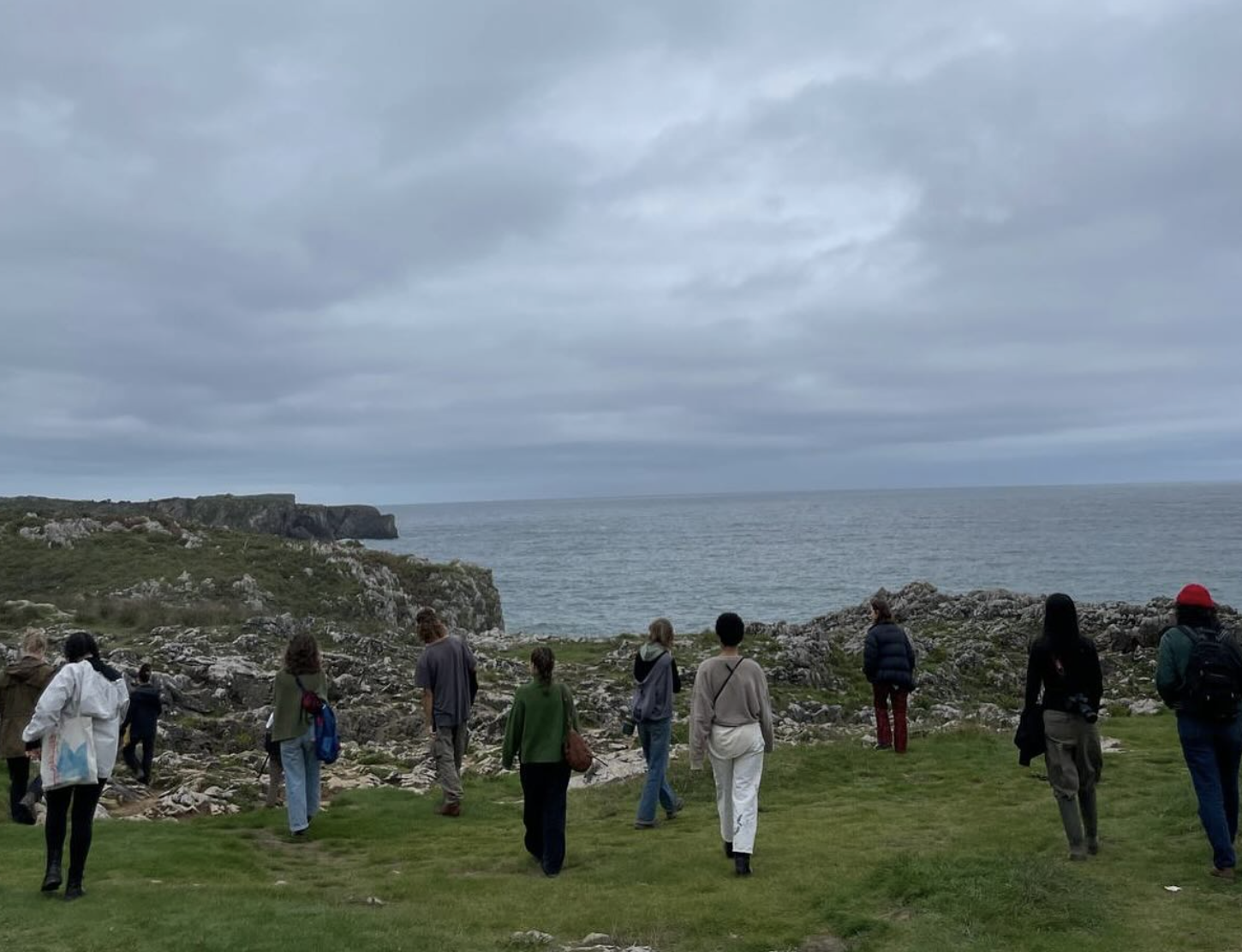
The Inland Academy continues to flourish, offering a platform for learning and exchange that bridges art, ecology, and rural development. With two in-person sessions and three online gatherings completed, the Academy has brought together participants from diverse contexts to explore critical topics and build meaningful connections.
Launch of the New Course
The cycle of the Inland Academy began with an initial online session, where participants were introduced to the year ahead. Guest contributor Lu Millet led a discussion on research and knowledge through the lenses of Affect Theory, queerness, and alternative methodological approaches. Facilitated by Elisa La Grua, and with contributions from Grace Gloria Denis and Mariana Murcia of the Pedagogical Commission, the session laid the groundwork for future explorations.
As the Academy continues its journey, the Inland Village remains a vital space for dialogue and transformative learning, blending creative practices with ecological and rural insights.
October Session: Animal Studies and Sustainable Practices
The October session, held at the Inland Village, focused on animal studies, rural ecosystems, and sustainable, land-based practices. Through a combination of daily activities, thought-provoking talks, and hands-on workshops, participants engaged with the land and its rhythms. Highlights included:
- – Practical activities such as cheesemaking, apple pressing, seasonal harvesting, and joining Nel shepherds at the summer pastures.
- – Explorations of human-animal relations and their intersections with ideologies of “nature” and productive systems.
- – Insightful talks led by Marisol de la Cadena on “Being with Cows,” Michael Marder on “Vegetal Being,” and Lluis Casanova on “Politics of Animality.”
This immersive experience underscored how rural knowledge, ecology, and multispecies interactions can guide sustainable ways of living.
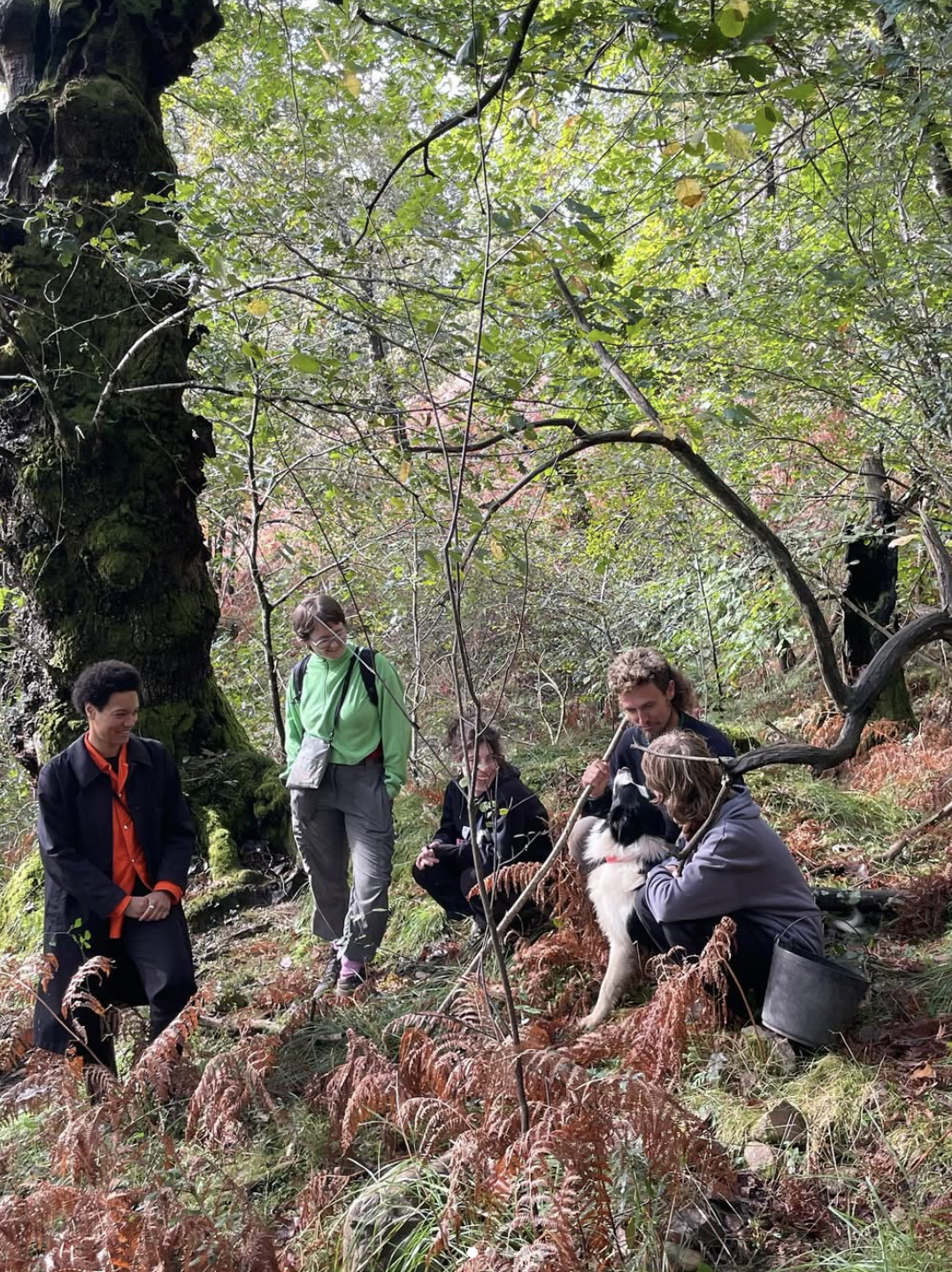
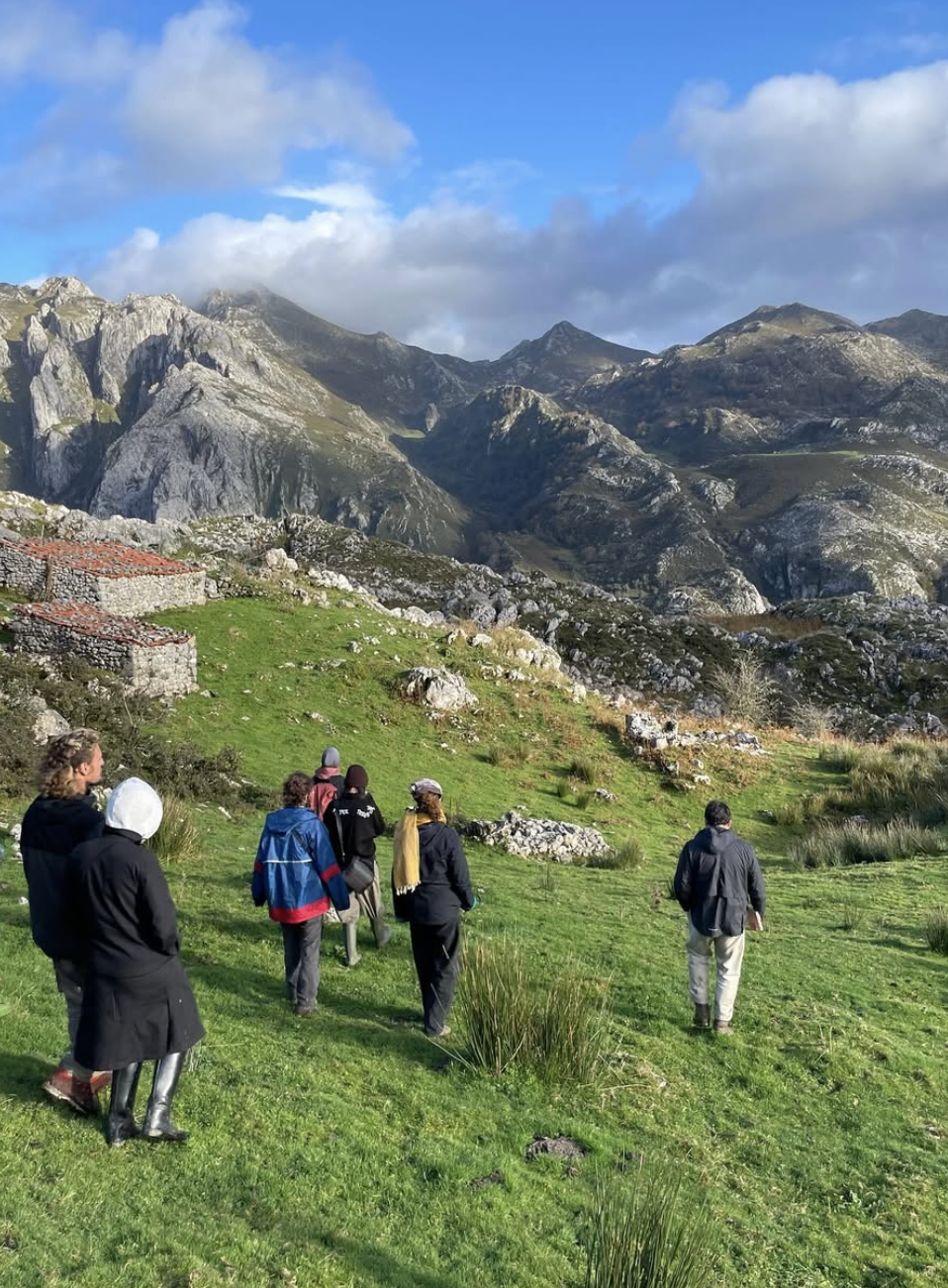
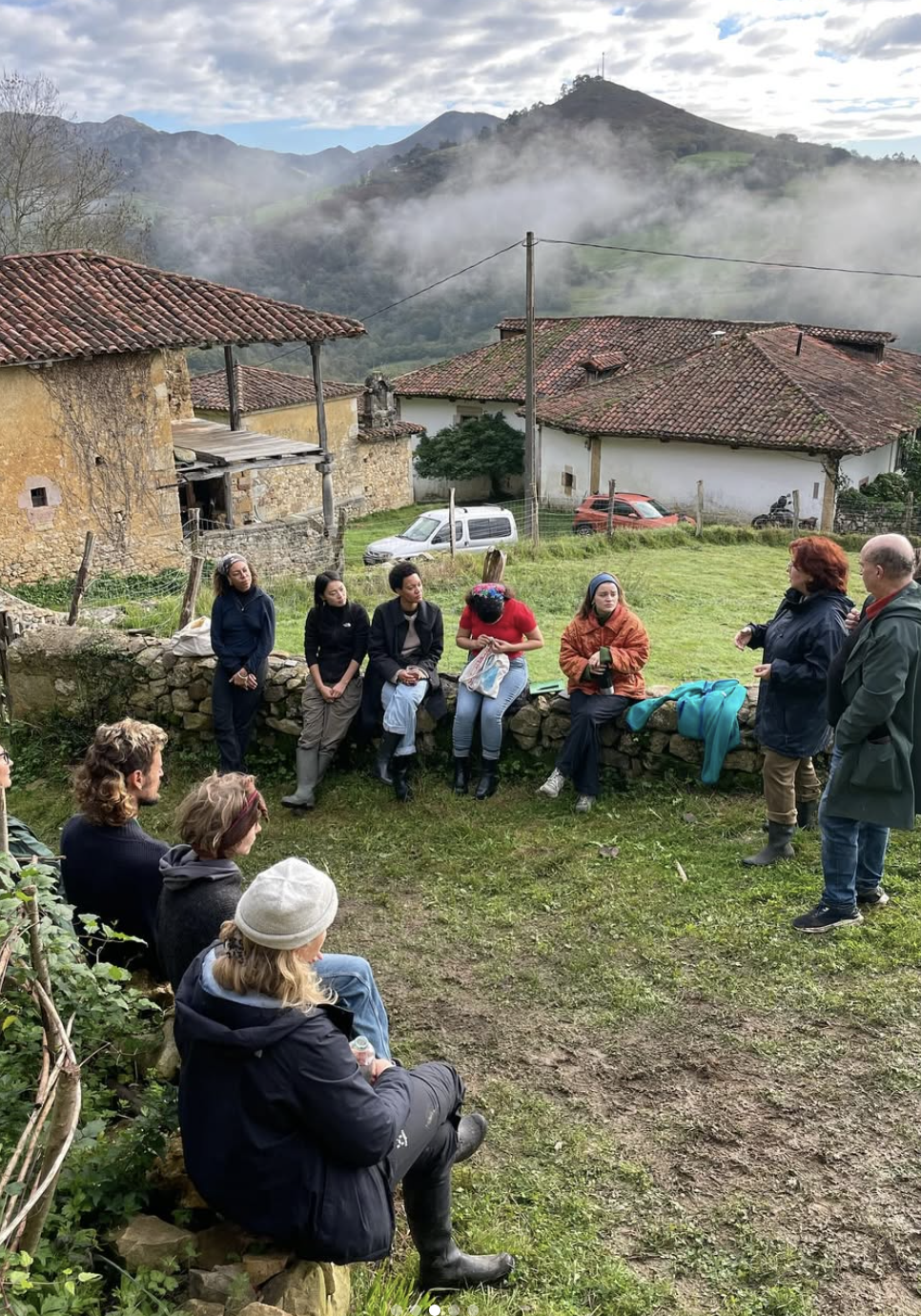
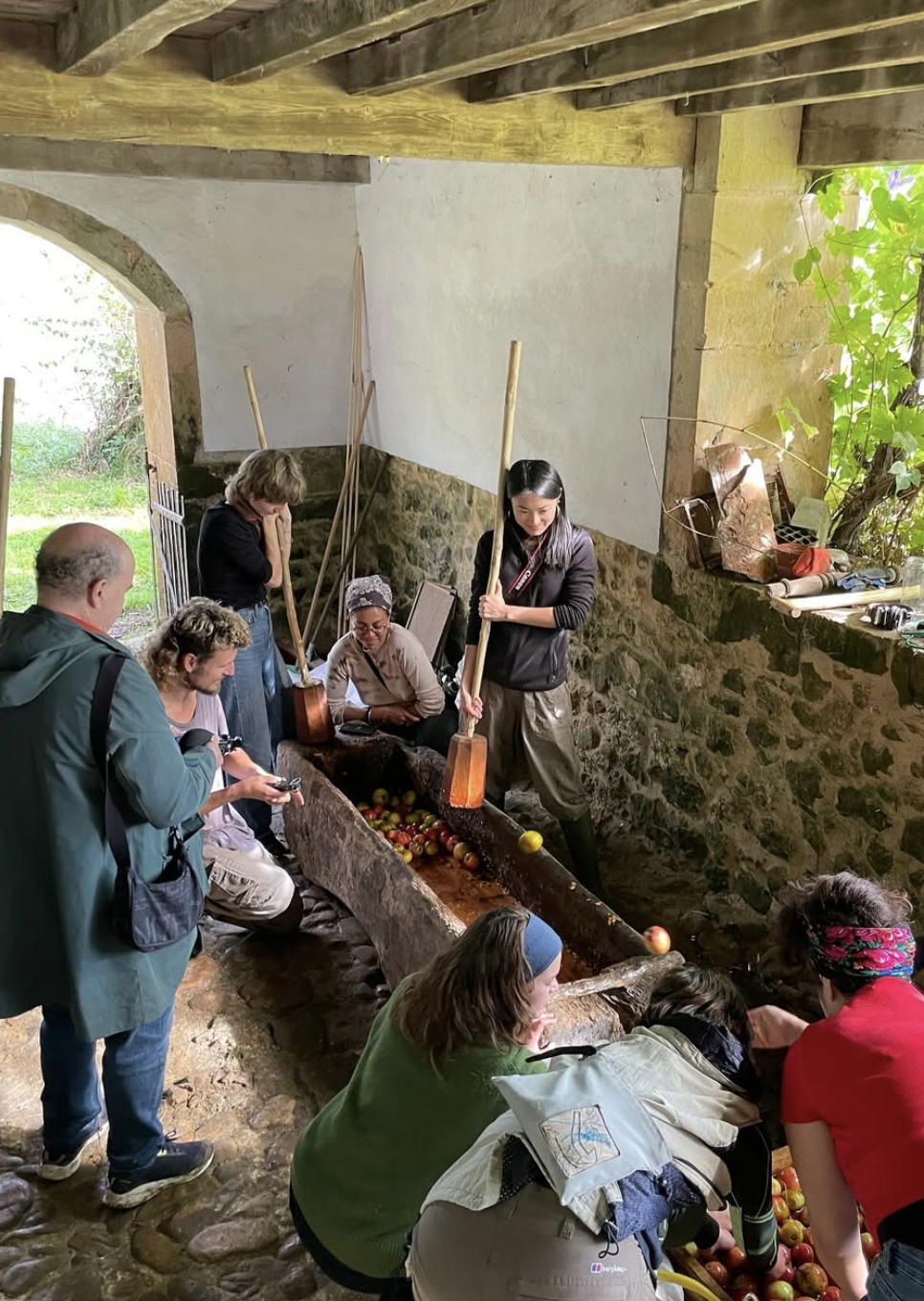
Last Session: Exploring the Atlantic Ecosystem
In the last session, the Academy delved into the Atlantic marine ecosystem near the Inland Village. The session began with collective readings curated by Cristina Ramos, including Astrida Neimanis’ “Bodies of Water: Posthuman Feminist Phenomenology” and Alexis Pauline Gumbs’ “Undrowned: Black Feminist Lessons from Marine Mammals.”
Cristina’s essay, “The Undercurrents,” served as the foundation for a Sound Oceanic Meditation, incorporating breathing exercises and a visit to nearby cliffs. These cliffs, with their hollow tidal cavities resembling geological alveoli, released air and vaporized seawater in rhythmic jet flows, creating a sensory connection to the ocean.
The day concluded with an exploration of small-scale fishing practices, facilitated by conversations with local fishing crews and cooks. Participants learned about the challenges faced by the industry and tasted a dish of freshly caught seasonal pilchards, offering a tangible connection to the ecosystem.
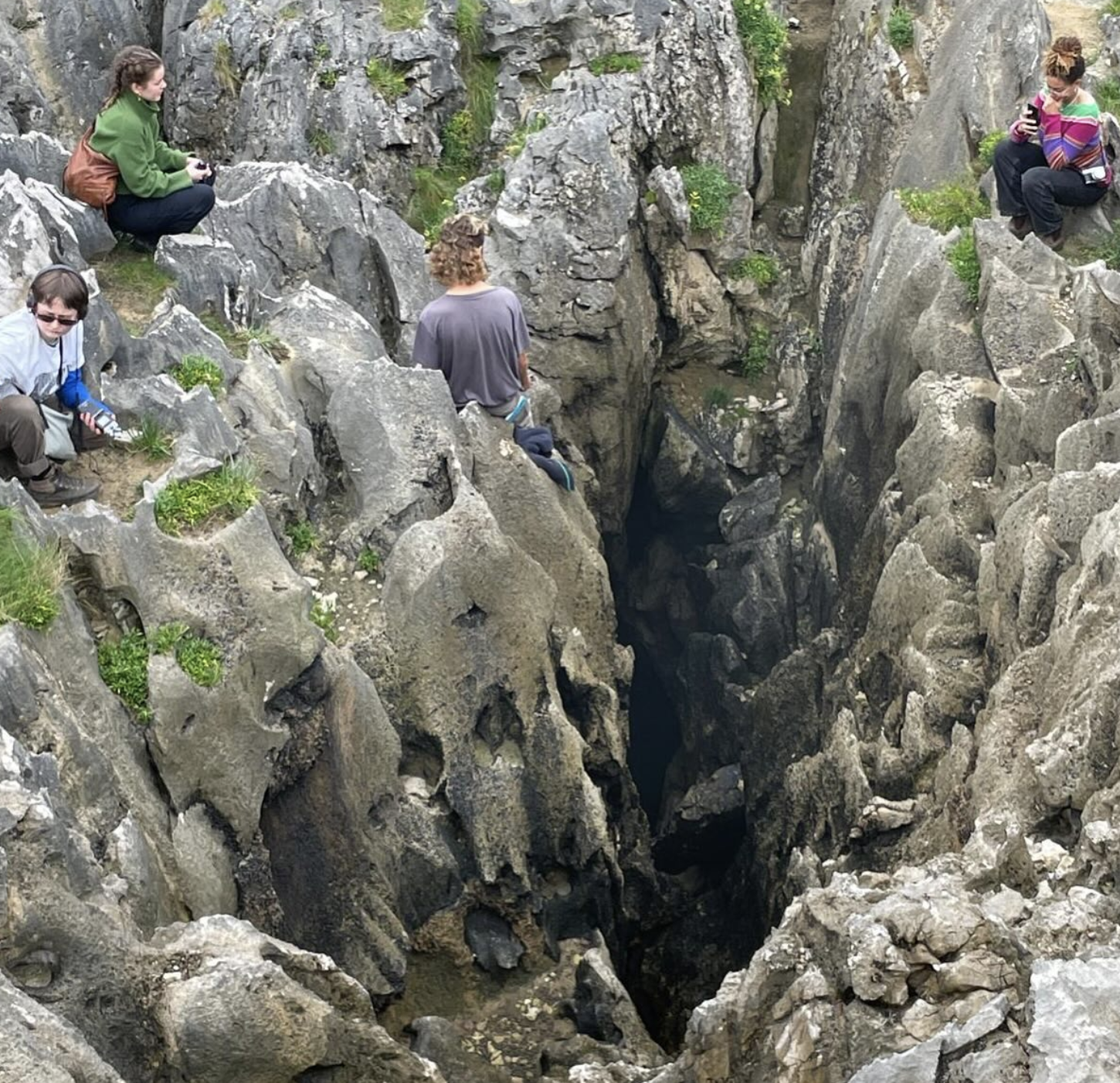
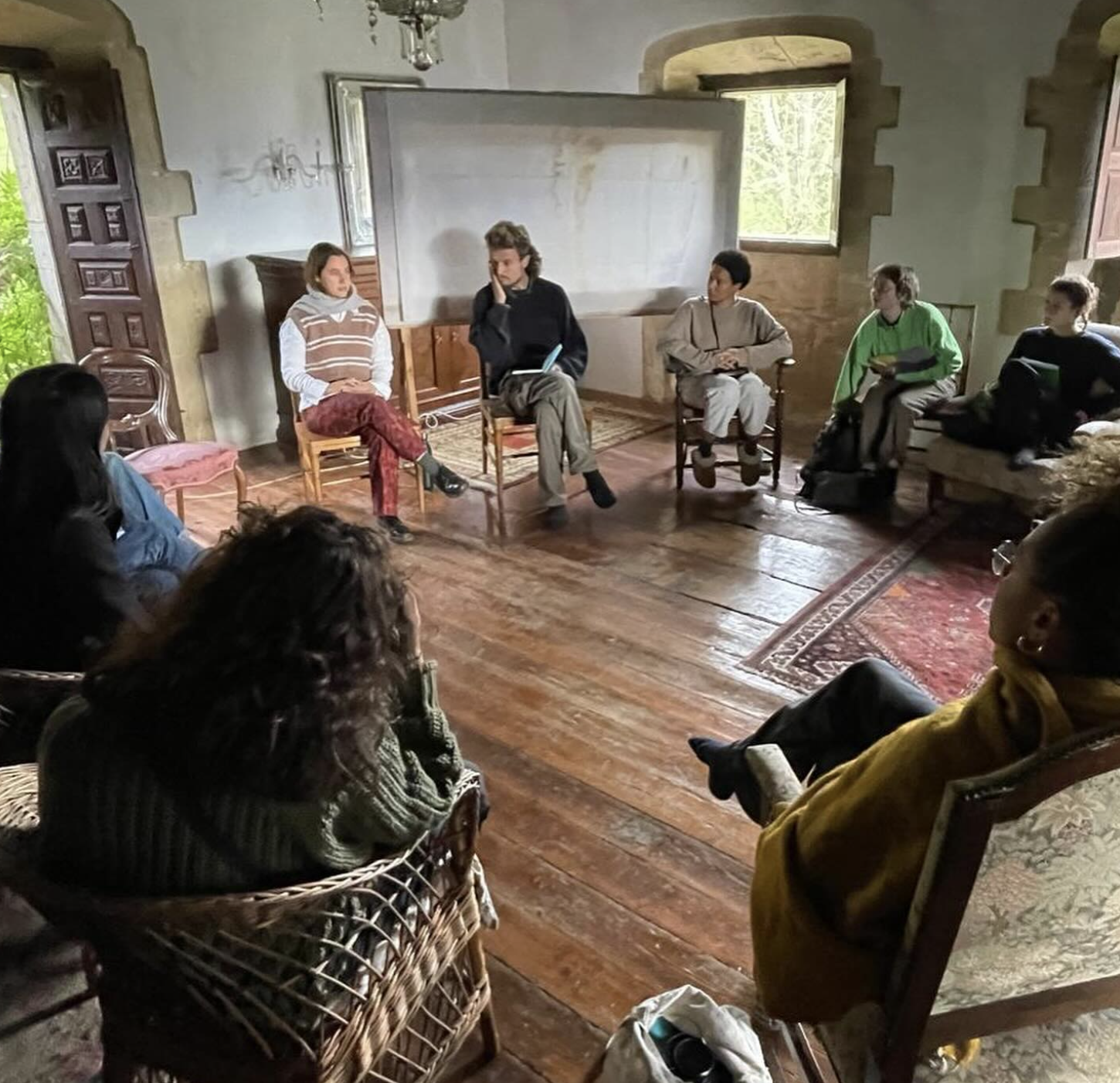
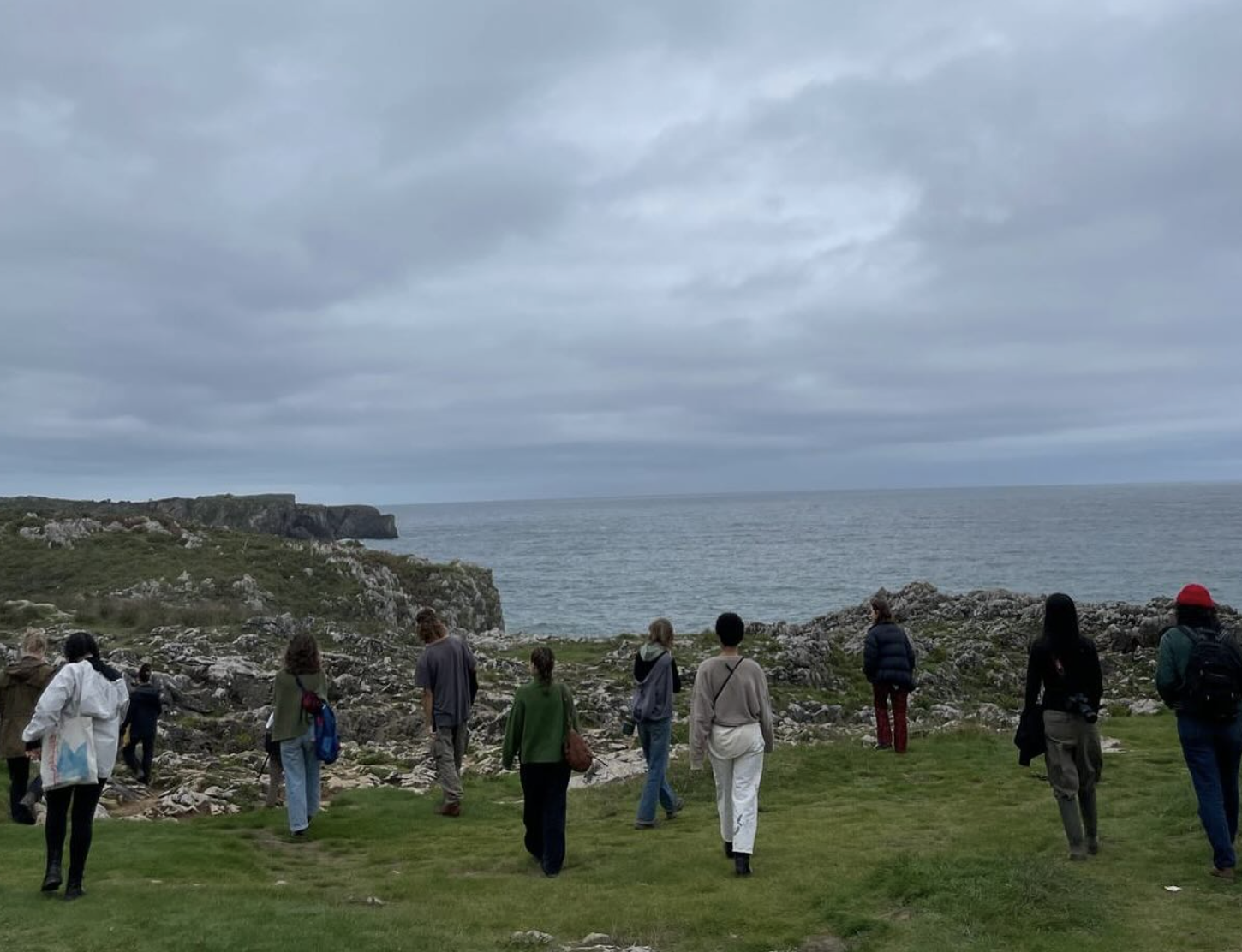
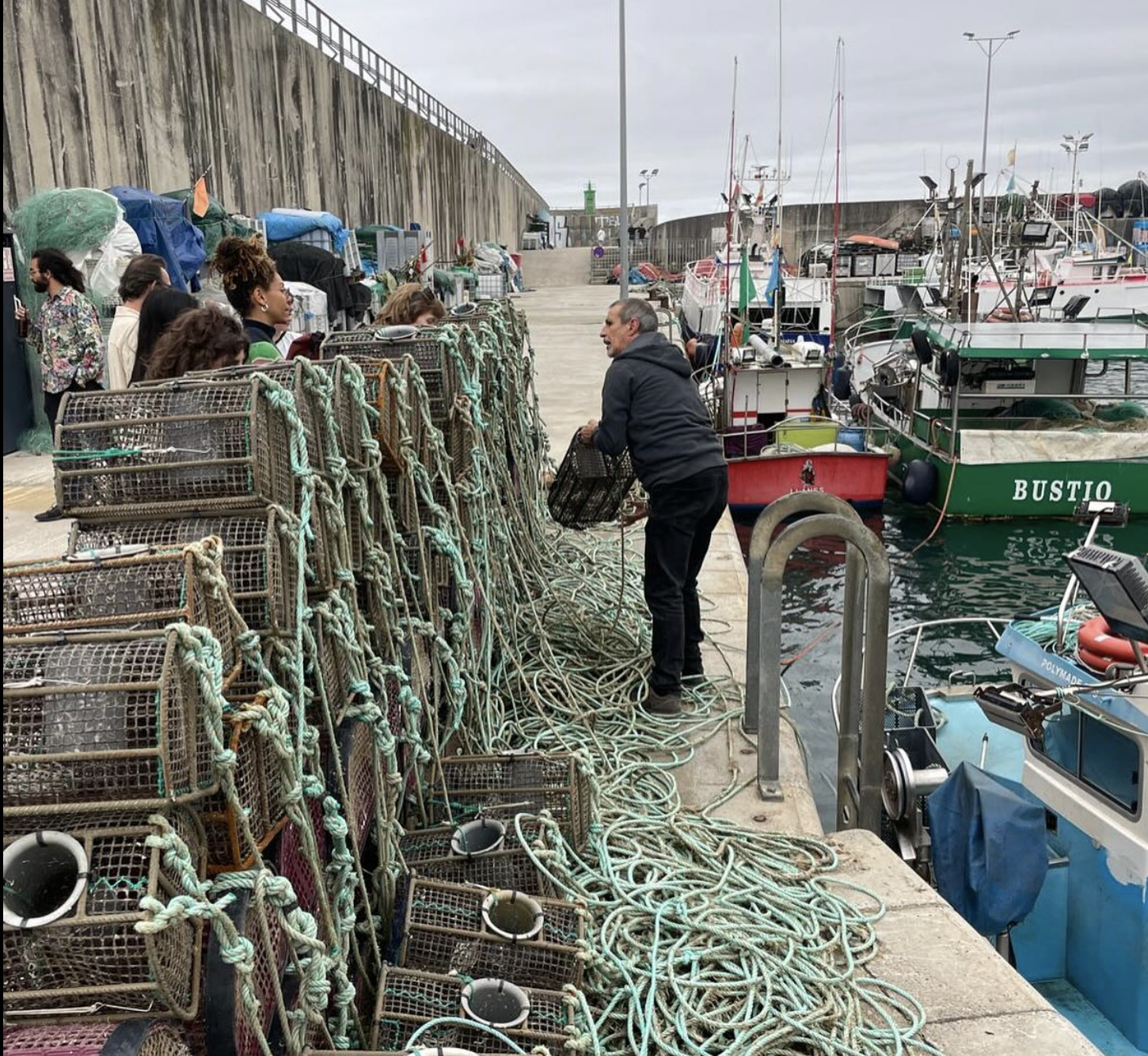
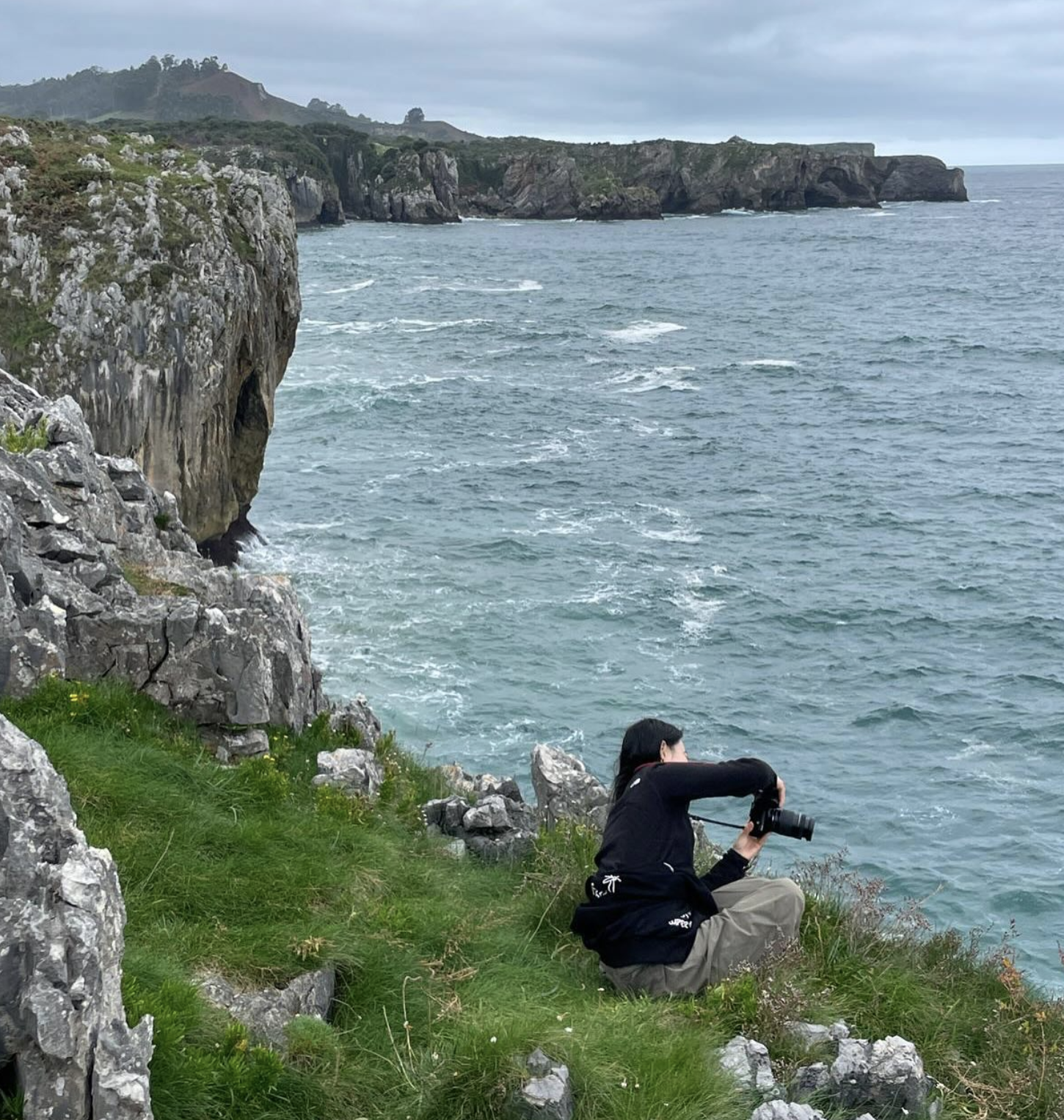
Pictures credit : © Inland Campo Adentro
Read more at the Inland´s website
